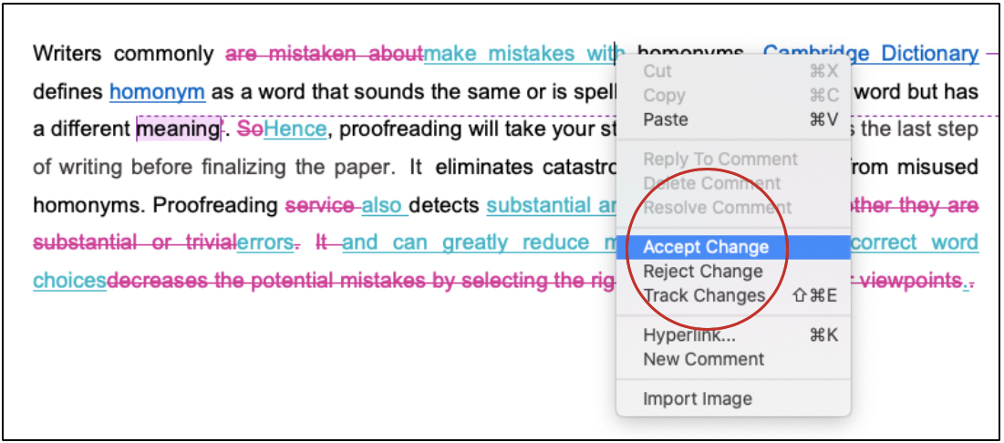When writing for academic or professional purposes, such as writing a research paper or a professional email to the CEO of a firm, people use diction that is far more objective, complex, and meticulous than their everyday language. In other words, they use “formal” language or, to be precise, language that carries a “formal tone.” This article will peruse the definition of “formal tone,” albeit in the context of academic writing. In addition, it will give some helpful tips to aid writers in writing more formally.

When writing for academic or professional purposes, such as writing a research paper or a professional email to the CEO of a firm, people use diction that is far more objective, complex, and meticulous than their everyday language. In other words, they use “formal” language or, to be precise, language that carries a “formal tone.”
This article will peruse the definition of “formal tone,” albeit in the context of academic writing. In addition, it will give some helpful tips to aid writers in writing more formally.
Consider the following two sentences:
I believe there are high chances that it will rain tomorrow evening.
According to the data presented by the meteorological department, the probability of precipitation tomorrow evening is high.
Both sentences essentially divulge the same meaning. However, the second sentence is more thorough and carries with it a complementary earnestness. The difference, here, lies in the “tone” of these sentences. The tone of the first sentence is informal while the tone of the second sentence is formal.
Within the scope of academic writing, a formal tone refers to the usage of words and language rules that exude elegance, respect, explicitness, and an overall scholarly seriousness in a text. As such, formal language omits certain idiosyncrasies of its informal counterpart, such as contractions, unnecessary abbreviations, and overuse of simple sentences.
Formal writing is more sophisticated than vernacular. Hence, there are certain unspoken edicts that one needs to abide by in order to write formally. Mentioned below are some such rules that cover most of, if not all aspects of formal writing.
Writing formally entails one to write from the third-person viewpoint. This is so because formal writing is, in a general sense, impersonal. Authors write in third-person to make their documents seem more credible and less conversational to the readers.
Hence, when writing for formal purposes, one should make it a rule of thumb to avoid using first-person and second-person pronouns such as “I,” “we,” “you.” However, the third-person rule does not apply to citations.
Example:
Informal: I think this experiment is unethical in nature.
Formal: The nature of this experiment is supposedly unethical.

A hallmark of formal writing is that it is devoid of any instance of colloquial words and language features. Writers do not use words such as stuff, thing, and crazy when writing formally as they fall into the informal category.
This also implies that formal writing rules out slang, inappropriate contractions, and unspecified abbreviations.
Example:
Informal: He pissed off the crowd with his actions.
Formal: That person angered the crowd with his actions.
Informal: They can’t perform tonight.
Formal: They are unable to perform tonight.
Or
They cannot perform tonight.
Formal writing is about objectivity, i.e., it is less emotional and does not propose the idea of including personal feelings and opinions in the text. Instead, writers, when writing formally, present their arguments in a detailed and unambiguous manner.
Thus, in order to achieve a formal tone, writers should abstain from using phrases such as “I think” and “I believe” and prominently use words backed with sound logic. Additionally, any usage of punctuations signifying emotional attributes should be discouraged.
Example:
Informal: In my opinion, climate change will be bad for future generations.
Formal: Reports suggest that climate change will be detrimental to future generations.
According to the (general) consensus, the usage of phrasal verbs should be shunned in the context of formal writing as they render a sense of “informality” to a formal text. However, not all phrasal verbs are unfit for use in formal writing. Certain phrasal verbs such as “carry out,” “bring about,” “put forward,” are appropriate for use in formal documents.
Therefore, instead of entirely eliminating phrasal verbs, exclude only those that are informal.
Example:
Informal: The detectives were checking up on the activities of three teenagers.
Formal: The detectives were investigating the activities of three teenagers.
Informal: A massive power outage put off the election rally.
Formal: The election rally had to be postponed due to a power outage.
Writing in a formal tone takes considerable practice as one needs to keep in mind several language rules, grammar rules, writing etiquettes, social conventions, and pertinent vocabulary. As such, writers should refrain from trying hard to sound formal by including a lot of jargon and complicated terms in their works. Formal writing is not about being complex but about relaying a message while keeping in line with the “formal” writing customs.
Best Edit & Proof expert editors and proofreaders focus on offering manuscripts with proper tone, content, and style of academic writing, and also provide an upscale editing and proofreading service for you. If you consider our pieces of advice, you will witness a notable increase in the chance for your research manuscript to be accepted by the publishers. We work together as an academic writing style guide by bestowing subject-area editing and proofreading around several categorized writing styles. With the group of our expert editors, you will always find us all set to help you identify the tone and style that your manuscript needs to get a nod from the publishers.

You can also avail of our assistance if you are looking for editors who can format your manuscript, or just check on the particular styles for the formatting task as per the guidelines provided to you, e.g., APA, MLA, or Chicago/Turabian styles. Best Edit & Proof editors and proofreaders provide all sorts of academic writing help, including editing and proofreading services, using our user-friendly website, and a streamlined ordering process.
Visit our order page if you want our subject-area editors or language experts to work on your manuscript to improve its tone and style and give it a perfect academic tone and style through proper editing and proofreading. The process of submitting a paper is very easy and quick. Click here to find out how it works.
Our pricing is based on the type of service you avail of here, be it editing or proofreading. We charge on the basis of the word count of your manuscript that you submit for editing and proofreading and the turnaround time it takes to get it done. If you want to get an instant price quote for your project, copy and paste your document or enter your word count into our pricing calculator.
Contact us to get support with academic editing and proofreading. We have a 24/7 active live chat mode to offer you direct support along with qualified editors to refine and furbish your manuscript.
Follow us on Twitter, LinkedIn, Facebook, Instagram, and Medium.
For more posts, click here.
This article discusses formal academic tone in academic writing and tips to achieve it. To give you an opportunity to practice proofreading, we have left a few spelling, punctuation, or grammatical errors in the text. See if you can spot them! If you spot the errors correctly, you will be entitled to a 10% discount.
How to Determine Variability in a Dataset
14.10.2023
How to Determine Central Tendency
19.02.2023
How to Specify Study Variables in Research Papers?
14.01.2023
Population vs Sample | Sampling Methods for a Dissertation
14.01.2023
How to Ensure the Quality of Academic Writing in a Thesis and Dissertation?
04.12.2022
How to Avoid Anthropomorphism in Your Dissertation?
04.11.2022
How to Write a Research Methodology Section for a Dissertation and Thesis
07.08.2022
How to Write a Theoretical Framework for a Dissertation and Thesis?
05.08.2022
How to Write Literature Review for a Dissertation and Thesis
02.08.2022
How to Write a Dissertation and Thesis Introduction
31.07.2022

Research takes a crucial role in developing an outstanding academic paper. Ensuring credible research sets the foundation of an academic paper is essential for researchers to obtain the acceptability of the paper. This article discusses four practices that make students better at researching.
Continue Reading
Writing for academic purposes demands extreme finesse. It is not just the language that should be exemplary. Even the diction, the tone, and the context of the text should be on point. However, the path to achieving this finesse is a troublesome one. Many scholars, while treading this path, come across a myriad of academic writing problems that they find it too cumbersome to overcome. These problems can concern their language skills, research capabilities, or lack of awareness regarding their field of study. The purpose of this article is to address some of these recurring academic writing problems and suggest ways to deal with them.
Continue Reading
Some essays use logical and factual data to sustain their claims. They are known as argumentative essays and form a significant proportion of all essays written by scholars and students during their academic tenure. This article demonstrates how to write an argumentative essay by dividing the writing process into four detailed steps. Hence, readers looking to augment the plausibility of their argumentative texts should ensure to abide by them.
Continue Reading
Statistical analysis uses quantitative data and explores trends, patterns, and relationships. Thus, it is an indispensable instrument for researchers, states, firms, and many others. This article offers introductory knowledge on statistical analysis for students and researchers. After discussing descriptive and inferential statistics, it covers various research designs.
Continue Reading
There are several naive job seekers who waste their valuable time and energy designing their resumes instead of writing an eye-catching cover letter. It is too often people looking for a job neglect the importance of a cover letter. This article shows you 10 tips to write a persuasive cover letter for a resume and presents a short guide that will help you draft an impeccable cover letter for a resume.
Continue Reading